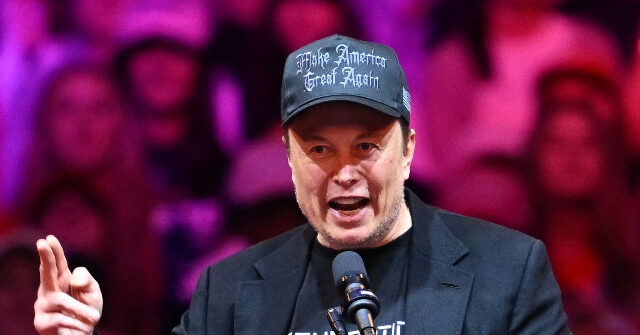Elon Musk, the renowned entrepreneur and tech magnate, has popularized the concept of reducing government waste, which resonates strongly with politicians like Rep. Josh Brecheen (R-OK). During an episode of Breitbart News Daily, Brecheen discussed the significance of Musk’s influence on public discourse regarding spending cuts. He praised Musk for his ability to reach a vast audience through social media, indicating that his platform might inspire significant changes in public policy. By engaging with influential figures like Musk, Brecheen believes there is a unique opportunity to galvanize public support for slashing unnecessary expenditures and reforming government practices.
Brecheen emphasized the importance of addressing the pressures that some members of Congress face from their financial backers, which often leads to reluctance in implementing needed budgetary reductions. He expressed encouragement by Musk’s popularity and argued that the tech entrepreneur’s reach could motivate Congress to act decisively on spending cuts. Brecheen highlighted how such transparency could unveil which lawmakers continue to resist necessary reform, creating a “naughty list” for those who fail to support the spending cuts that align with President Trump’s proposed agenda. Their collective push aims not merely to cut costs but also to change the overall narrative around government efficiency and fiscal responsibility.
The congressman’s remarks laid out the broader implications of spending cuts, linking them directly to economic health and inflation. He criticized the current fiscal environment, attributing inflation to the devaluation of U.S. currency driven by excessive government spending—nearly $2 trillion annually. Brecheen’s focus on economic revival underscores a fundamental belief that reducing wasteful expenditures is crucial for restoring financial stability and strengthening the dollar, which has seen a significant decrease in value since January 2020. In addressing inflation, Brecheen touched on how fiscal responsibility can catalyze an economic resurgence.
One of the critical themes in the discussion was the belief that government efficiency initiatives, such as the Department of Government Efficiency (DOGE), could serve as a vital framework for driving meaningful change. Brecheen pointed out that the actions taken under DOGE could directly influence decisions that affect both inflation and the broader economy. By refocusing on effective governance and prioritizing budgetary cuts in areas where waste is prevalent, Congress could help foster a sense of responsibility in spending. Brecheen’s perspective echoed a growing sentiment among some policymakers that tackling inefficiencies is not just a fiscal necessity but also a means to enhance public trust in government.
Moreover, by leveraging the widespread appeal and visibility of figures like Elon Musk, Brecheen argued that it is possible to build momentum around issues that might otherwise be ignored. Musk’s extensive following on social media platforms presents an opportunity for reaching individuals disillusioned with the status quo. The idea is that a single post from a figure of Musk’s stature could catalyze public discourse and prompt lawmakers to reconsider their stances on spending. Brecheen’s confidence in Musk’s ability to influence public sentiment reflects a strategic partnership that could significantly impact the political landscape surrounding fiscal policy.
In conclusion, the dialogue between Rep. Josh Brecheen and Breitbart host Mike Slater highlights a growing coalition that seeks to address government inefficiencies through spending cuts. By celebrating the influence of entrepreneurs like Elon Musk, these policymakers underscore the intersection of business acumen and governmental responsibility. As they advocate for a tighter fiscal approach, they also raise awareness about the broader implications of overspending on inflation and economic health. The call to action is clear: through transparency, public engagement, and a commitment to cutting waste, there exists the potential not only to rejuvenate the economy but also to restore confidence in the government’s ability to manage public funds responsibly.

